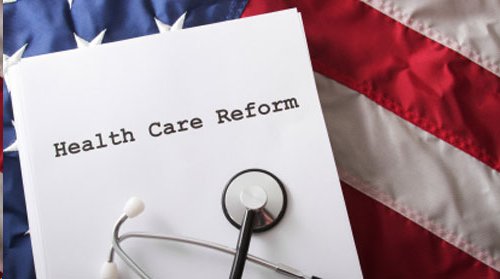Poll: Youths, Minorities Are Key Supporters of Obamacare

From our content partner, New America Media:
SACRAMENTO -- A strong majority of ethnic voters and young people in California support the Affordable Care Act, according to the results of a new Field Poll. The broad support from ethnic voters and voters under 30 has tipped the scales toward popular support of Obamacare in the state.
More than half of all California voters (53 percent) say they support the ACA, although white voters slightly oppose the health care law, with 49 percent opposing and 44 percent supporting.
But over 80 percent of African-American voters are in favor of the law, along with two-thirds of Latino voters. Asian-American voters also widely support the ACA, especially Vietnamese (76 percent) and Filipino voters (74 percent).
Additionally, 63 percent of voters under 30 express support for the law.
Mark DiCamillo, director of The Field Poll, notes that “the biggest differences [in support] relate to partisanship and political ideology.” Over 75 percent of registered Democrats back the ACA, as opposed to just 17 percent of Republicans. Ninety percent of self-identified liberals express support, compared to 15 percent of their conservative counterparts.
“One of the complicating factors … that will potentially hinder the outreach effort are voters’ predispositions toward the Affordable Care Act,” says DiCamillo. He notes that voters who are Republican or identify as conservative are less likely to express interest in receiving information about Covered California, the state’s health insurance exchange.
The survey, administered by The Field Poll with support from The California Wellness Foundation, was conducted over landline phones and cell phones between late June and mid-July. Approximately 1,700 registered voters were polled in English, Spanish, Cantonese, Mandarin, Tagalog, Korean, and Vietnamese, with nearly 400 polled in non-English languages.
Half of California voters say that they have difficulty affording health care. The number is higher among ethnic voters, especially among Latino voters (60 percent).
Most uninsured voters (72 percent) and low-income voters whose household income is less than 139 percent of the federal poverty level, or about $32,700 a year for a family of four (71 percent) reported having a hard time affording health care.
DiCamillo says that Covered California has “a massive job ahead of itself” in terms of outreach to the state’s uninsured population, since many Californians have little understanding of the ACA, especially the voters who stand to benefit the most from the law’s provisions.
While only one-fourth of voters under age 65 say they have heard “a lot” or “some” about Covered California, uninsured voters and individuals interviewed in non-English languages were even less likely to have knowledge of the exchange.
But interest in learning about Covered California is high among ethnic voters, with Latinos, African Americans, Asian Americans, and non-English speakers all expressing a high level of interest in receiving information (79 percent, 82 percent, 64 percent, and 83 percent respectively).

DiCamillo says that the state has a lot of work to do in communicating to the moderate-income population that they might be eligible for tax credits if they purchase insurance on the exchange. When surveyed, two out of three uninsured voters who are eligible for tax credits were found to be unaware of their eligibility.
Similarly, less than half of the low-income voters who will be newly eligible for Medi-Cal were aware of their eligibility.
At a press briefing at the State Capitol last week presenting the poll’s findings, Secretary Diana Dooley of the California Health and Human Services Agency said that she was particularly struck by the data on young voters. The survey found that just 18 percent of voters under 30 say they have knowledge of Covered California.
“Much of our campaign will be targeted to moms,” says Dooley. Because most uninsured young people have little knowledge of their coverage options, Dooley is hopeful that communicating that information to their parents will result in more enrollees.
Ellen Wu, executive director of the California Pan-Ethnic Health Network, says the strong support for the ACA among communities of color reflects the fact that these are the communities that stand to benefit the most from the law’s implementation.
The poll found that over 75 percent of non-English speakers under the age of 65 would prefer to receive information about Covered California in their native languages. Wu urges “the establishment of 800 numbers for non-English languages,” as part of the communication strategy the state is establishing for people to find information on their coverage options. She says that if non-English speakers see the same 800 number listed for everyone, they won’t trust that their language will be included and may not call.
David Panush, director of government relations for Covered California, is confident that the Affordable Care Act will ultimately be successful. He compares current disagreements to old arguments over the implementation of Medicare, which now has broad bipartisan support.
“When we had the Medicare debate 50 years ago, [it was] enormously controversial,” he says. “We’ll look back and say, ‘What was all the fuss about?’”




























































































































































































































































































































